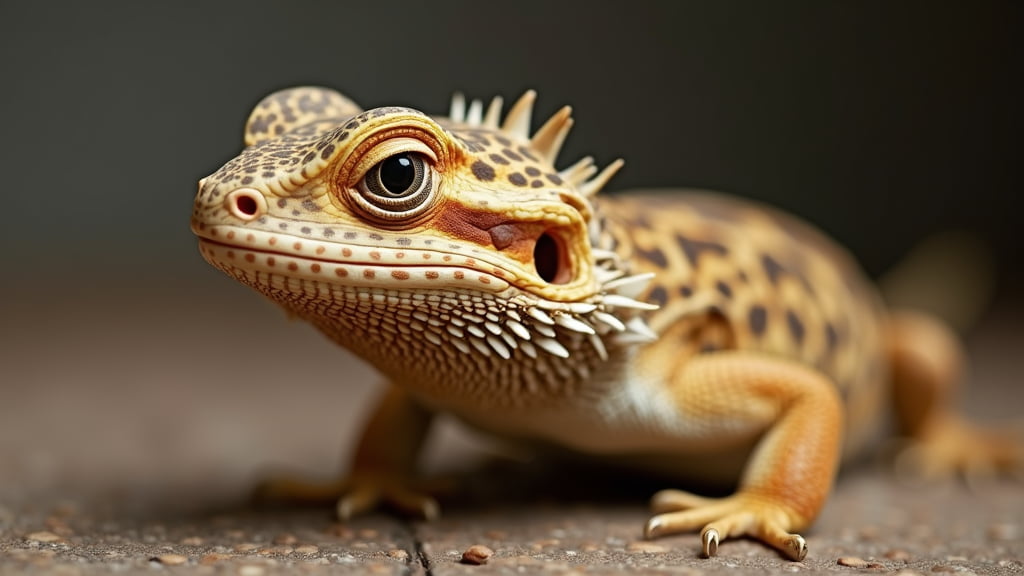Bearded dragons are delightful pets, known for their docile nature and fascinating behaviours. However, like any animal, they can occasionally exhibit behaviour problems that can puzzle or frustrate their owners. Whether you’re a new bearded dragon parent or have had your scaly friend for years, understanding and addressing these behaviours is crucial for maintaining a healthy, happy pet. Let’s dive into common behaviour problems and how to handle them!
Aggression in Bearded Dragons
Aggression can be quite alarming, especially if your usually placid bearded dragon suddenly lashes out. Understanding the root cause of this aggression is the first step to addressing the issue effectively.
Causes of Aggression
Bearded dragons can become aggressive for several reasons:
- Territorial Behaviour: This is particularly common in males, especially during breeding season. They may perceive anything, even you, as a threat to their territory.
- Stress: Changes in the environment, handling, or feeding schedule can cause stress.
- Health Issues: Pain or discomfort from an underlying health issue can manifest as aggression.
Strategies to Reduce Aggression
To mitigate aggression, try the following:
- Provide a Comfortable Environment: Ensure their habitat is adequately sized, with appropriate lighting, temperature, and hiding spots.
- Consistent Handling: Gradually increase handling time, allowing your dragon to get used to human interaction.
- Health Check: If aggression appears suddenly, consult a vet who specialises in reptiles to rule out any health problems.
Reluctance to Eat
Food refusal can be particularly concerning as it can quickly lead to health issues. Identifying the cause is crucial to encouraging your bearded dragon to eat.
Common Causes of Feeding Problems
- Improper Habitat Conditions: Incorrect temperature, lighting, or humidity levels can deter a bearded dragon from eating.
- Illness: Just like humans, bearded dragons can lose their appetite when they’re unwell.
- Stress or Change: Any recent changes in their environment or diet can cause temporary feeding issues.
Solving Feeding Issues
Here are some tips to encourage eating:
- Check Habitat Parameters: Ensure temperature, humidity, and lighting are optimal. Bearded dragons need a basking spot around 38-42°C and a cooler area between 22-26°C.
- Varied Diet: Offering a variety of insects, vegetables, and occasional fruits can entice your dragon to eat.
- Routine: Stick to a consistent feeding schedule to establish a sense of security.
Inappropriate Basking or Hiding
Sometimes you might find your bearded dragon not basking enough or hiding too much, which can signal various issues.
Reasons for Basking or Hiding Issues
- Temperature: If temperatures are not within the ideal range, your dragon may avoid basking.
- Comfort: Too much hiding can indicate stress or discomfort in their environment.
Encouraging Normal Behaviour
To promote proper basking and an appropriate amount of hiding:
- Review Habitat Setup: Ensure the basking area is warm enough and the hiding spots are sufficient but not overabundant.
- Monitor Behaviour: Record any changes you make and observe how your dragon responds. Gradual improvements can provide insights into what’s working.
- Health Checks: Persistent reluctance to bask or excessive hiding warrants a visit to the vet to rule out health concerns.
Conclusion
Bearded dragon behaviour problems can be managed effectively with patience, observation, and proper care. Creating a comfortable environment and understanding the underlying causes behind these behaviours are key to ensuring your bearded dragon remains happy and healthy. Remember, if you ever feel out of your depth, always seek the guidance of a vet with experience in reptiles. Happy herping!
For more information on creating the perfect habitat for your bearded dragon, check out our Bearded Dragon Care Guide. For veterinary concerns, refer to a qualified reptile vet.
By understanding and addressing these common behaviour problems, you can ensure your bearded dragon thrives in their home. Remember, patience and observation are your best tools in cultivating a strong, positive relationship with your exotic pet.
Feel free to share your experiences or reach out with questions in the comments below!
Meta Description: Discover how to handle bearded dragon behaviour problems including aggression, food refusal, and inappropriate basking or hiding. Expert advice on ensuring a healthy, happy pet.

